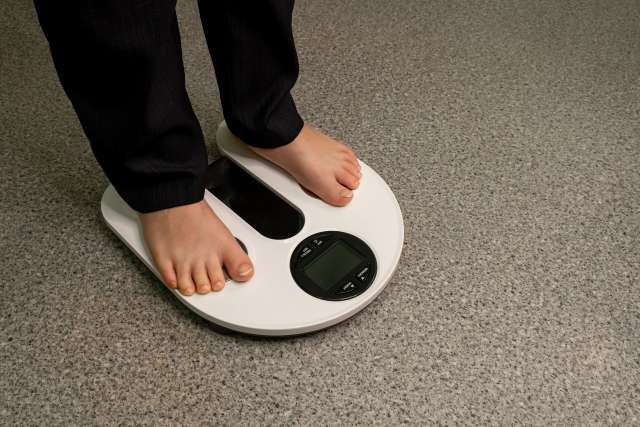Obesity is a worldwide epidemic, and it isn’t limited to adults. In the U.S., almost 15 million children and teens – about one in five kids – have obesity. The number has tripled since the 1970s.
The American Academy of Pediatrics (AAP) recently introduced for treating childhood obesity. For the first time, the guidelines include obesity medication (for kids 12 and older) and weight loss surgery (for teens 13 and older).
Those measures certainly aren’t the only treatment options available. And there are steps parents and families can take to reduce the risk of . But the most vital part of treating childhood obesity is recognizing it and taking action.
Signs of childhood or teenage obesity
Excessive body weight is just one sign of obesity. Children with obesity often have additional symptoms, including:
- Extreme sweating
- Fatigue
- Gastroesophageal reflux (acid reflux)
- Joint pain
- Puberty abnormalities (delayed puberty in boys and early puberty in girls)
- Shortness of breath
- Sleep apnea and snoring
Your child’s pediatrician will compare your child’s body mass index (BMI) — which measures weight in relation to height — to other children of the same sex and age. Children and teens with a BMI in the 95th percentile or higher may be diagnosed with obesity.
Most health care providers will also consider other factors when diagnosing obesity. In addition to weight-related symptoms, they’ll likely look at the child’s family history and lifestyle.
Why treating obesity is important
Obesity is a chronic disease that can require lifelong management. Children who are overweight or obese tend to stay that way in adulthood.
But obesity in childhood also increases the risk of developing associated weight-related diseases and conditions at a younger age, including:
- Asthma: Like adults, children with obesity are at increased risk of developing chronic lung inflammation.
- Heart disease: People with obesity often have elevated cholesterol levels and high blood pressure, which can lead to heart disease.
- Joint pain: Carrying excess weight puts pressure on lower joints, which can lead to earlier cartilage deterioration and limited range of motion.
- Sleep disorders: Children who are overweight or obese are more likely to develop sleep apnea.
- Type 2 diabetes: Overweight children and teens have an increased risk of type 2 diabetes, which is reversible with lifestyle changes.
Untreated obesity, especially obesity in teens, can also affect a child’s mental health. It can lead to the development of anxiety or depression. It can also lead to bullying and social isolation.
Obesity treatment for children and teens
Treating obesity in children and teens requires a multidisciplinary approach. Education and mental health support are vital to success, along with medical interventions, including:
Lifestyle changes
Changing your family’s and child’s lifestyle can help with weight loss for kids and is a critical part of any obesity treatment. Your child’s pediatrician will guide you and your child in adopting a healthier lifestyle that includes:
- Adequate exercise that gives children the recommended 150 to 300 minutes of physical activity weekly.
- Healthy diet full of whole and plant-based foods instead of processed and pre-packaged foods.
- Limited take-out food, which is often full of unnecessary sugar, sodium, fat and calories.
- Plenty of sleep, so your child can make healthy decisions and have the energy to exercise.
Medications for obesity
When lifestyle changes are not enough, children 12 and older can take prescription weight-loss medicine to treat obesity. Children ages 8 to 11 may also be prescribed medication for obesity in certain situations. Drugs approved to treat childhood obesity include:
- Liraglutide (Saxenda)
- Orlistat (Xenical)
- Phentermine-topiramate (Qsymia)
- Semaglutide (Wegovy)
Weight-loss surgery for teens
The 2023 AAP guidelines support the evaluation of some teens for weight-loss (bariatric) surgery. It’s generally recommended for children 13 and older who have:
- A BMI of 35 or greater and obesity-related health complications
- A BMI of 40 or greater with or without related health complications
Most teens who are candidates for bariatric surgery typically have severe obesity and have been working on healthy lifestyle habits for years with no success. The most common weight-loss surgeries — gastric sleeve and gastric bypass — can help people lose about 30% of their body weight. But those who undergo these procedures will need to follow specific diet and activity recommendations after the surgery.
What to do if you think your child has obesity
If you have concerns about your child’s weight, make an appointment with their pediatrician. They can consider all the factors that go into diagnosing obesity. They already understand your child’s health and medical history, but they likely will ask about your child’s diet, activity level and any related symptoms you’ve noticed.



